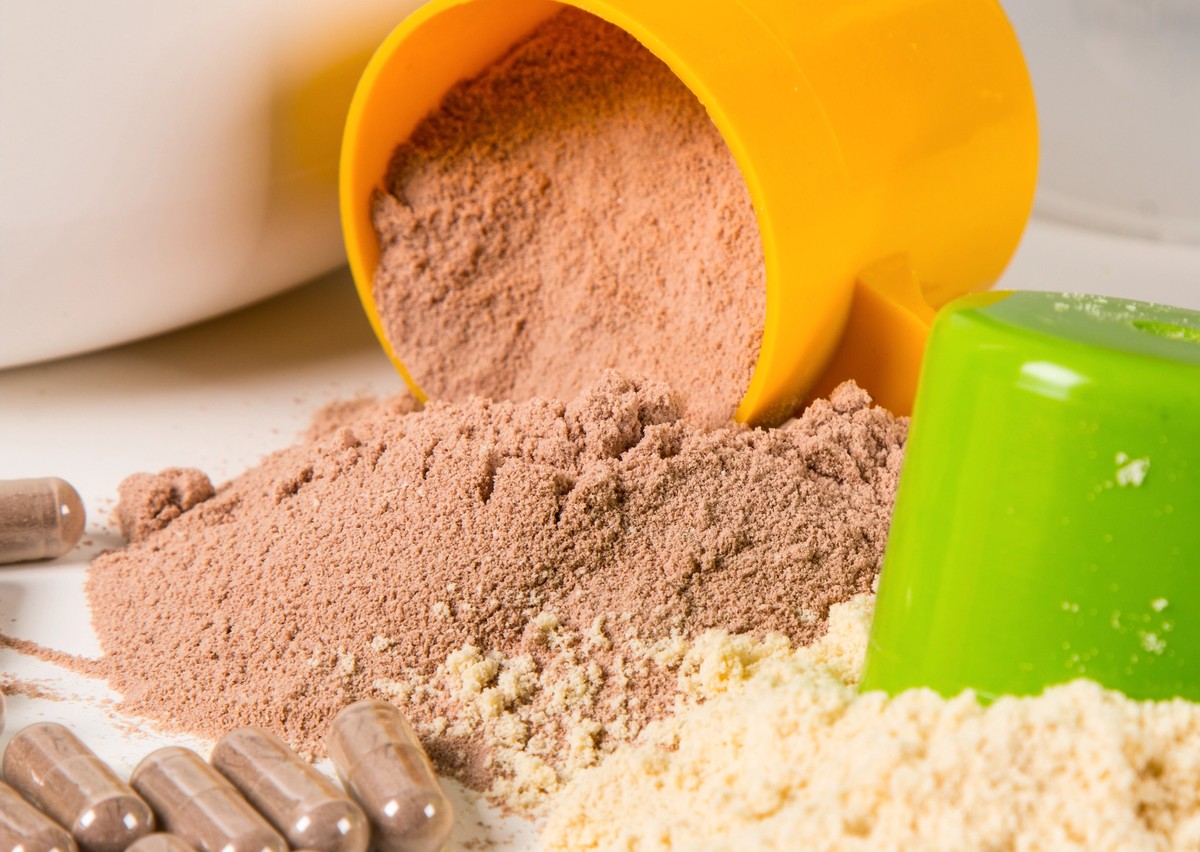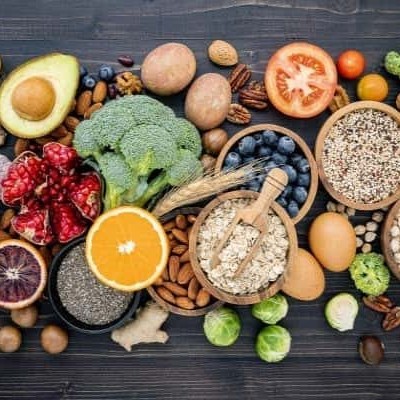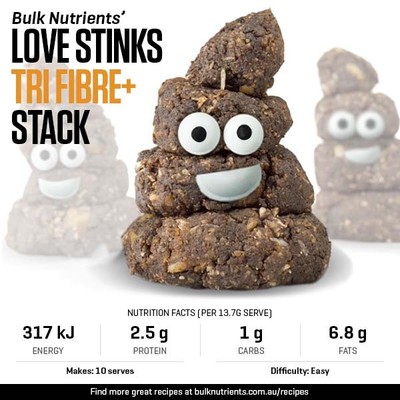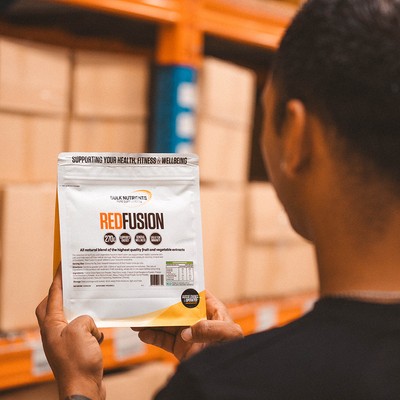Why You Should Take Fibre Supplements

Do you need to take fibre supplements?
A lot of us are often unsure if we should be taking supplements. Are they necessary in order to achieve optimal health? The answer for most people, is yes.
In today’s world our food supply is of poor quality, we experience a high load of toxins in our bodies and brains and on top of that, we have to manage the stresses of our everyday lives. This in turn often requires us to take a daily supply of supplements.
Of course, the type of supplements that need to be taken varies from person to person, depending on their current health and lifestyle.
There are few supplements that almost everyone can benefit from taking though. One of these is fibre.
Read on to find out what fibre is and why you should consider consuming it in the form of supplements to contribute to your recommended daily allowance.
What is fibre?
Fibre is a type of carbohydrate, although it cannot be broken down into sugar molecules. The words “dietary fibre” and “fibre” are commonly interchangeable in nutrition.
Fibre is important for weight management, blood sugar regulation, cholesterol maintenance, digestion and regularity.
Fibre is the indigestible part of plant foods (including veggies, fruits, grains, beans and legumes), sometimes known as roughage. It eases bowel movements by travelling through our digestive system and absorbing water along the way.

The benefits of consuming fibre
Consuming fibre comes with a host of benefits from improving a wide variety of medical conditions as well as general health. Here are a few of these benefits:
- Increases the speed at which food exits our bodies
- Has been shown to reduce the risk of colon cancer by as much as a third
- Fibre can lower cholesterol
- Reduces the risk of heart disease
- Natural cure for irregularity and constipation
- Helps prevent weight gain and obesity
- Helps balance hormone levels
- Helps removes excess estrogen
- Provides food for colon cells
The difference between soluble vs insoluble fibre
There are two different types of fibre: soluble and insoluble and both should be included in your diet.
Soluble simply means that it can be dissolved into water - therefore digested by your system. When you add water to soluble fibre, it turns into a gel-like texture and increases in size. This means it can make you feel fuller for longer.
Examples of soluble fibre include oats, nuts, seeds, fruits and vegetables.
Insoluble fibre is the opposite - it does not dissolve, and therefore is not digested. It will pass through your system in close to its original state.
Bran and whole grains are examples of insoluble fibre. While it isn't digested, it can help keep you regular by adding bulk to your stool.
Are you getting enough daily fibre through your diet?
The recommended daily allowance for the average adult is 30g of fibre for men and 25g of fibre for women.
The truth is, most of us aren’t getting enough fibre in our normal diets. That’s why choosing a supplement that contains both soluble and insoluble fibre will greatly benefit your overall health.

What types of fibre supplements are available?
Fortunately, there are a variety of fibre supplements for you to choose from. These supplements contain different types of fibre, some soluble, some insoluble and some contain both.
Top tip: Make sure to check the ingredients list of any supplement that you are considering purchasing, to make ensure they don’t contain added sugars, additives or colourings.
Fibre supplements include:
Psyllium as a source of fibre
Made from the seed husks of the plantago ovata plant, psyllium contains both soluble and insoluble fibre. It has been known to decrease blood glucose levels as a result of slowing down carbohydrate absorption. Psyllium has also been found to decrease the symptoms that are associated with IBS (Irritable Bowel Syndrome).
Inulin
Inulin is a prebiotic fibre and promotes the production of the beneficial gut bacteria Bifidobacteria. It is found in many fruits and vegetables but is usually extracted from chicory root when in supplement form. It plays a role in mineral absorption. It is 100% soluble fibre.
Wheat Dextrin Fibre
This fibre is fully soluble and helps normalize digestive function. It is also a prebiotic and contains a small amount of gluten. It is extracted from starch that is found inside the whole-grain wheat. Wheat Dextrin is fermented in the large intestine and this promotes beneficial bacteria.
Methylcellulose
Made from cellulose, methylcellulose is a soluble fibre and is non-fermentable. It is primarily used to treat constipation and is less likely to contribute to gas and bloating than the other supplements. It is well tolerated in the colon and may help relieve some forms of diarrhoea.
Combination Fibres

It can be easier to choose a combination fibre supplement - like Bulk Nutrients’ all-in-one fibre supplement - to reach your fibre intake goals. This way you can ensure you are getting different types of fibre in to your diet in one easy supplement.
Tri Fibre+ contains Psyllium, Inulin and Konjac Root to promote gut health. It is an extremely pure source of fibre and contains no fillers, flavours or sugars.
Is it possible to consume too much fibre?
In short - yes - especially if you ramp up your fibre intake quickly. The side effects centre around digestive distress, such as bloating, cramping, constipation and gas.
Don’t let the symptoms of flatulence and bloating alarm you too much though, as these are often part of the healing process while your body is adjusting to your new fibre intake.
Ensure you drink more water as you increase your fibre consumption to relieve any discomfort. If you are not seeing any improvement in your symptoms, check in with your doctor.
Remember, making healthy changes takes time, and taking fibre supplements to better your health is no different.
References:
- Brauchla, M., Juan, W., Story, J. and Kranz, S., 2012. Sources of Dietary Fiber and the Association of Fiber Intake with Childhood Obesity Risk (in 2–18 Year Olds) and Diabetes Risk of Adolescents 12–18 Year Olds: NHANES 2003–2006. Journal of Nutrition and Metabolism, [online] 2012, pp.1-7. Available at: Sources of Dietary Fiber and the Association of Fiber Intake with Childhood Obesity Risk (in 2–18 Year Olds) and Diabetes Risk of Adolescents 12–18 Year Olds.
- Cabré, E., 2010. Irritable bowel syndrome: can nutrient manipulation help?. Current Opinion in Clinical Nutrition and Metabolic Care, [online] 13(5), pp.581-587. Available at: Irritable bowel syndrome: can nutrient manipulation help?. Current Opinion in Clinical Nutrition and Metabolic Care.
- Nrv.gov.au. Dietary Fibre | Nutrient Reference Values. [online] Available at: Nutrient Reference Values.
- Healthyfoodguide.com.au. Nutrition Guidelines | Australian Healthy Food Guide. [online] Available at: Nutrition Guidelines.
- Wu, Y., Qian, Y., Pan, Y., Li, P., Yang, J., Ye, X. and Xu, G., 2015. Association between dietary fiber intake and risk of coronary heart disease: A meta-analysis. Clinical Nutrition, [online] 34(4), pp.603-611. Available at: Association between dietary fiber intake and risk of coronary heart disease: A meta-analysis.
Related Blogs

Fibre: How Much Do You Need to Maximise Health and Longevity?
Posted by Bulk Nutrients
Estimated reading time: 3 minutes

Love Stinks Tri Fibre+ Stack
Posted by Nicole Frain
Recipe difficulty: Easy

Natural – The Bulk Nutrients way
Posted by Ryan Bevan
Estimated reading time: 4 minutes





























